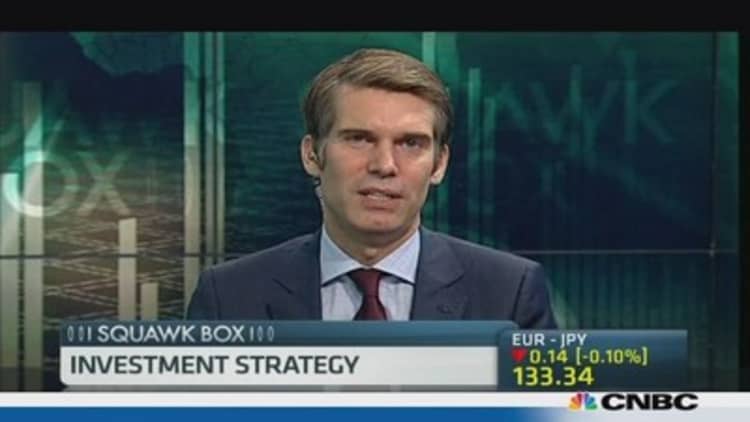Overseas banks have given Shanghai's much-hyped free-trade zone a chilly reception – Sunday's launch included just two branches of non-Chinese institutions.
The slow start for the zone contrasts with the high expectations for its future, with analysts saying it could herald the most ambitious push for financial reforms in China in more than a decade. The Chinese government has declared that it wants to use the zone – a small 28 square kilometers sliver of Shanghai – as a test bed for policies from interest rate liberalization to capital account opening.
(Read more: Shanghai's free trade zone - What's the hype about?)
But the tepid reaction of foreign banks so far reflects widespread confusion about how the zone will operate, even as regulators have appealed for patience.
Citigroup and Singapore's DBS are the only foreign banks that will begin operations in the new zone for now, Chinese officials announced after a ribbon-cutting ceremony.

A banking regulator familiar with the approval process told the Financial Times that very few applications had been submitted and virtually all of the banks that had applied were accepted.
"Many banks have made enquiries but they are still trying to understand what the zone will involve and whether it is worth setting up a branch there," the regulator said.
The highest-ranking official at the launch ceremony was Gao Hucheng, China's commerce minister, suggesting that the government is wary of overplaying the zone's significance. Li Keqiang, the premier, has advocated using the zone as a laboratory for reforms, fueling expectations that he would attend its opening.
(Read more: Is Shanghai's free trade zone really a game changer?)
Many of the specific policies for the zone are still being debated. At a news conference, Liao Min, head of the Shanghai arm of the China Banking Regulatory Commission, said the government would adjust the regulatory standards applied to banks in the zone to give them a freer hand to operate, while also ensuring that external risks would not spread to China.
A foreign banking official told the FT last week that international banks had been confused about whether to apply to establish subbranches connected to their existing Chinese operations or to incorporate entirely new subsidiaries. In the end both Citi and DBS received approval to establish subbranches.
More from the Financial Times:
China's recovery felt in corporate sector
China's 'drinks king' hurt in knife attack
Banks watchdog retreats from strict rules
The securities regulator said it would allow parent companies of branches based in the free-trade zone to issue bonds in the domestic Chinese market, something that has happened only rarely in the past.
Chinese officials said on Sunday they would soon publish a keenly awaited "negative list", establishing which business lines will be closed to foreign companies in the zone, while all others will be open. The move is expected to give foreign investors much more freedom. Dai Haibo, a Shanghai government official, said that companies in the free-trade zone would receive business licences in as little as four days, down from the 29 days it normally takes now.
Mr Dai also called for patience. "It's our first time using a negative list and we will encounter lots of new problems," he said. "This is a pilot program, and we need to give it time."

